Discover "10 Power Foods for a Supercharged You" in the Indian way! Boost your health with nutrient-rich delights. Read on for a wholesome transformation journey
Namaste, and good health to you! In today's
fast-paced duniya, it's easy to grab a quick samosa or that instant noodles pack. But, are we really giving our bodies the proper fuel to function at its best? The answer, often times, is a resounding no.
We've become so dependent on processed foods that we’ve forgotten the incredible power of natural, nutrient-rich foods available right here in India.
These foods are packed with vitamins, minerals, antioxidants, and more, capable of giving you sustained energy, bolstering your immunity, and transforming your overall health.
So, ditch the junk and let’s dive into the top 10 nutrient-dense foods that can revolutionize your wellness journey, all with a desi twist!
Spinach (Palak): The Iron Powerhouse
Palak, or spinach, isn't just for Popeye. It's a nutritional champion bursting with iron, Vitamin A, Vitamin C, and antioxidants. Iron is essential for carrying oxygen throughout your body, preventing fatigue and boosting energy levels.
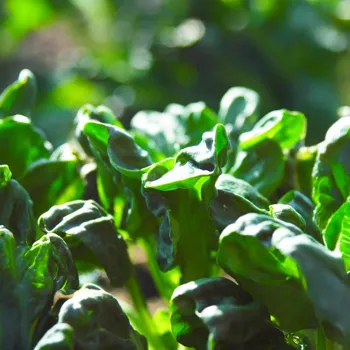
Vitamin A supports healthy vision and immune function, while Vitamin C acts as a powerful antioxidant, protecting your cells from damage. Spinach is also a good source of folate, important for cell growth and development. Incorporating spinach into your diet is easy.
You can add it to your dals, make palak paneer, blend it into smoothies, or simply sauté it with a little garlic and spices for a quick and healthy side dish. Remember, lightly cooking spinach actually helps release more iron, making it more readily available for absorption by your body.
This leafy green is quite versatile.
Amaranth (Rajgira): The Ancient Grain with Modern Benefits
Rajgira, or amaranth, is an ancient grain that has been cultivated in India for centuries. It's a complete protein, meaning it contains all nine essential amino acids that your body cannot produce on its own.
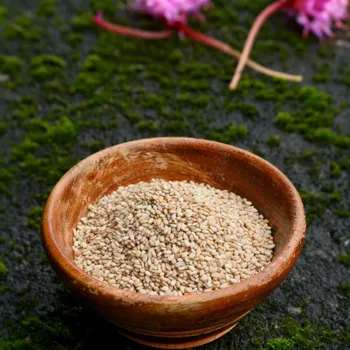
This makes it an excellent choice for vegetarians and vegans looking to meet their protein needs. Amaranth is also a good source of fiber, which aids digestion and helps regulate blood sugar levels.
It's naturally gluten-free, making it a safe and healthy option for those with celiac disease or gluten sensitivity. You can use rajgira flour to make rotis or pancakes, pop the grains like popcorn for a healthy snack, or cook it as a porridge.
It has a slightly nutty flavor and a chewy texture, adding a unique element to your meals. Don’t mistake amaranth with ramdana.
Lentils (Dal): The Protein-Packed Staple
Dal is a staple in almost every Indian household, and for good reason. Lentils are an excellent source of protein, fiber, iron, and folate. They are also low in fat and calories, making them a healthy and filling food.
Different types of dal, such as masoor dal, toor dal, and moong dal, offer slightly different nutritional profiles. But all are packed with goodness that supports your overall health. The fiber in lentils helps to regulate bowel movements, prevent constipation, and lower cholesterol levels.
Iron helps to prevent anemia, while folate is crucial for healthy cell growth. Dal is incredibly versatile and can be used to make a variety of dishes, from simple dal tadka to more elaborate curries and soups. Make sure your family is consuming a lot of dal for better health.
Yogurt (Dahi): The Probiotic Powerhouse
Dahi, or yogurt, is not just a refreshing treat, it’s a powerhouse of probiotics. Probiotics are beneficial bacteria that live in your gut and help to improve digestion, boost immunity, and even enhance your mood. Yogurt is also a good source of calcium, vitamin D, and protein.
Calcium is essential for strong bones and teeth, while Vitamin D helps your body absorb calcium. Opt for plain, unsweetened yogurt to avoid added sugars. You can enjoy it as is, add it to your smoothies, use it as a marinade for vegetables, or make a cooling raita.
Make sure that you are taking a source of vitamin C because it is a must need for the body and for better immune system. Yogurt should not be taken if the weather is too cold for you.
Turmeric (Haldi): The Golden Healer
Haldi, or turmeric, is a spice that has been used in India for centuries for its medicinal properties. The active compound in turmeric, curcumin, has powerful anti-inflammatory and antioxidant effects.
Studies have shown that curcumin may help to reduce the risk of chronic diseases, such as heart disease, cancer, and Alzheimer's disease. Turmeric can be added to almost any dish, from dals and curries to soups and smoothies.
You can also make "golden milk" by mixing turmeric with milk and warming it up gently. This is a popular remedy for colds and coughs. But make sure that you consult your family doctor before taking any medicine. It is important to know about your allergy as well.
Amla (Indian Gooseberry): The Vitamin C Champion
Amla, the Indian gooseberry, is a small, tart fruit that is incredibly rich in Vitamin C. In fact, it has one of the highest concentrations of Vitamin C of any fruit.
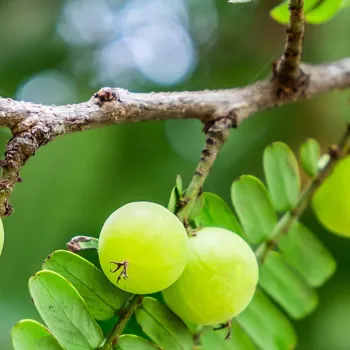
Vitamin C is a powerful antioxidant that helps to boost your immune system, protect against infection, and promote collagen production for healthy skin and hair. Amla is also a good source of fiber and antioxidants. You can eat amla raw, pickled, or in the form of juice or powder.
It has a slightly sour and bitter taste, but its health benefits make it worth the effort. Amla candy and murabba are also popular ways to enjoy this superfood, although they may contain added sugar. But for better taste, you can add some amount of salt or chilli powder for taste.
Moringa (Drumstick Leaves): The Nutritional Multivitamin
Moringa, also known as drumstick leaves, is a nutritional powerhouse that's often referred to as a "superfood." These leaves are packed with vitamins, minerals, and antioxidants. Moringa is a good source of protein, iron, calcium, vitamin A, and vitamin C.

It has been used in traditional medicine for centuries to treat a variety of ailments. Studies have shown that moringa may help to lower blood sugar levels, reduce inflammation, and improve cholesterol levels. Moringa leaves can be added to dals, curries, soups, or even made into a stir-fry.
They have a slightly peppery taste, but are easily absorbed by the body.
Nuts (Badam, Akhrot, Kaju): The Healthy Fat Powerhouses
Nuts like badam (almonds), akhrot (walnuts), and kaju (cashews) are excellent sources of healthy fats, protein, fiber, vitamins, and minerals. Healthy fats are essential for brain health, hormone production, and nutrient absorption.
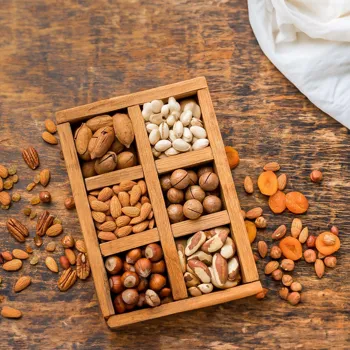
Almonds are rich in vitamin E, a powerful antioxidant, while walnuts are a good source of omega-3 fatty acids, which are beneficial for heart health. Cashews are a good source of iron and zinc. Nuts are a convenient and healthy snack that can be enjoyed on the go.
You can also add them to your breakfast cereal, smoothies, or use them as a topping for salads and desserts. Just be mindful of portion sizes, as nuts are calorie-dense.
Seeds (Chia, Flax, Sesame): The Tiny Giants of Nutrition
Seeds like chia, flax, and sesame are tiny but mighty giants of nutrition. Chia seeds are an excellent source of fiber, omega-3 fatty acids, and antioxidants. Flax seeds are rich in lignans, which have antioxidant and estrogen-like properties.
Sesame seeds are a good source of calcium, iron, and magnesium. Seeds can be added to smoothies, yogurt, salads, baked goods, or sprinkled over your meals. They add a boost of nutrition and a pleasant texture to your dishes. You can also grind flax seeds to improve nutrient absorption.
Seeds are very important for proper digestion.
Green Leafy Vegetables (Sarson, Methi): The Vitamin & Mineral Goldmine
Sarson (mustard greens) and methi (fenugreek leaves) are just two examples of the many incredibly nutritious green leafy vegetables available in India. These vegetables are packed with vitamins, minerals, and antioxidants.
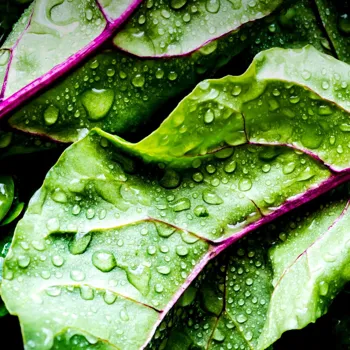
Sarson is a good source of Vitamin K, which is important for blood clotting and bone health. Methi is known for its ability to help regulate blood sugar levels and improve digestion. Green leafy vegetables can be used in a variety of dishes, from dals and curries to stir-fries and salads.
They are a versatile and affordable way to boost your nutrient intake. This increases their ability to work to their maximum potential.
By incorporating these 10 nutrient-dense foods into your daily diet, you can start transforming your health from the inside out.
Remember, small changes can make a big difference over time. So, embrace the power of these foods and embark on a journey to a healthier, happier you! Shubh Swasthya! (Good Health!) And don't start any new diet by yourself.
AI Generated Content. Glance/InMobi shall have no liability for the content











